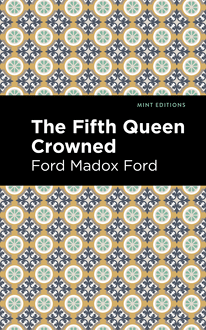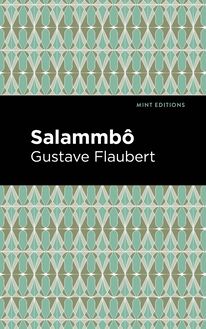-
 Univers
Univers
-
 Ebooks
Ebooks
-
 Livres audio
Livres audio
-
 Presse
Presse
-
 Podcasts
Podcasts
-
 BD
BD
-
 Documents
Documents
-
- Cours
- Révisions
- Ressources pédagogiques
- Sciences de l’éducation
- Manuels scolaires
- Langues
- Travaux de classe
- Annales de BEP
- Etudes supérieures
- Maternelle et primaire
- Fiches de lecture
- Orientation scolaire
- Méthodologie
- Corrigés de devoir
- Annales d’examens et concours
- Annales du bac
- Annales du brevet
- Rapports de stage
La lecture à portée de main
Vous pourrez modifier la taille du texte de cet ouvrage
Découvre YouScribe en t'inscrivant gratuitement
Je m'inscrisDécouvre YouScribe en t'inscrivant gratuitement
Je m'inscrisEn savoir plus
Vous pourrez modifier la taille du texte de cet ouvrage
En savoir plus

Description
“A perfect work of the American imagination.”-D.H Lawrence
“The Scarlet Letter is so terrible in its pictures of diseased human nature as to produce most questionable delights. The reader’s interest never flags for a moment…Hawthorne, when you have studied him, will be very precious to you. He will have plunged you into melancholy, he will have overshadowed you with black forebodings, he will almost have crushed you with imaginary sorrows; but he will have enabled you to feel yourself an inch taller during the process.”-Anthony Trollope
Nathaniel Hawthorne’s The Scarlet Letter is a razor-sharp novel set in a seventeen-century puritan community. The book examines the contradictions of good and evil, what is apparent and what is hidden, and the power of redemption.
After Hester Prynne, the protagonist of The Scarlet Letter, has a child out of wedlock, she is branded with the scarlet letter “A” on her dress. Shunned in her community as she refused to identify the father of her child, Hester lives with in a small cottage with her daughter, Pearl. Roger Chillingworth, an elderly physician, joins the community, and unbeknownst to all except for Hester, he is her long-departed husband, who was presumed to be dead. In his absence, Hester had an affair and subsequently gave birth to a child. Covertly aiming for revenge on the father of the child, Chillingworth descends on Reverend Arthur Dimmesdale, the young minister who he suspects in the illicit affair.
Within the remarkable character of Hester, Hawthorne examines female independence and the complexities of sin. With a surprising emotional pitch and powerful insights into the human condition, this is one of America’s greatest novels.
With an eye-catching new cover, and professionally typeset manuscript, this edition of The Scarlet Letter is both modern and readable.
Sujets
Informations
| Publié par | Mint Editions |
| Date de parution | 22 novembre 2020 |
| Nombre de lectures | 2 |
| EAN13 | 9781513265360 |
| Langue | English |
| Poids de l'ouvrage | 2 Mo |
Informations légales : prix de location à la page 0,0500€. Cette information est donnée uniquement à titre indicatif conformément à la législation en vigueur.
Extrait
The Scarlet Letter
Nathaniel Hawthorne
The Scarlet Letter was first published in 1850.
This edition published by Mint Editions 2020.
ISBN 9781513264684 | E-ISBN 9781513265360
Published by Mint Editions ®
minteditionbooks.com
Publishing Director: Jennifer Newens
Design & Production: Rachel Lopez Metzger
Typesetting: Westchester Publishing Services
C ONTENTS T HE C USTOM -H OUSE . I NTRODUCTORY TO “T HE S CARLET L ETTER ” 1. T HE P RISON -D OOR 2. T HE M ARKET -P LACE 3. T HE R ECOGNITION 4. T HE I NTERVIEW 5. H ESTER AT HER N EEDLE 6. P EARL 7. T HE G OVERNOR ’ S H ALL 8. T HE E LF -C HILD AND THE M INISTER 9. T HE L EECH 10. T HE L EECH AND HIS P ATIENT 11. T HE I NTERIOR OF A H EART 12. T HE M INISTER ’ S V IGIL 13. A NOTHER V IEW OF H ESTER 14. H ESTER AND THE P HYSICIAN 15. H ESTER AND P EARL 16. A F OREST W ALK 17. T HE P ASTOR AND HIS P ARISHIONER 18. A F LOOD OF S UNSHINE 19. T HE C HILD AT THE B ROOK -S IDE 20. T HE M INISTER IN A M AZE 21. T HE N EW E NGLAND H OLIDAY 22. T HE P ROCESSION 23. T HE R EVELATION OF THE S CARLET L ETTER 24. C ONCLUSION
T HE C USTOM- H OUSE
Introductory to “The Scarlet Letter”
It is a little remarkable, that—though disinclined to talk overmuch of myself and my affairs at the fireside, and to my personal friends—an autobiographical impulse should twice in my life have taken possession of me, in addressing the public. The first time was three or four years since, when I favored the reader—inexcusably, and for no earthly reason, that either the indulgent reader or the intrusive author could imagine—with a description of my way of life in the deep quietude of an Old Manse. And now—because, beyond my deserts, I was happy enough to find a listener or two on the former occasion—I again seize the public by the button, and talk of my three years’ experience in a Custom-House. The example of the famous “P. P., Clerk of this Parish,” was never more faithfully followed. The truth seems to be, however, that, when he casts his leaves forth upon the wind, the author addresses, not the many who will fling aside his volume, or never take it up, but the few who will understand him, better than most of his schoolmates or lifemates. Some authors, indeed, do far more than this, and indulge themselves in such confidential depths of revelation as could fittingly be addressed, only and exclusively, to the one heart and mind of perfect sympathy; as if the printed book, thrown at large on the wide world, were certain to find out the divided segment of the writer’s own nature, and complete his circle of existence by bringing him into communion with it. It is scarcely decorous, however, to speak all, even where we speak impersonally. But, as thoughts are frozen and utterance benumbed, unless the speaker stand in some true relation with his audience, it may be pardonable to imagine that a friend, a kind and apprehensive, though not the closest friend, is listening to our talk; and then, a native reserve being thawed by this genial consciousness, we may prate of the circumstances that lie around us, and even of ourself, but still keep the inmost Me behind its veil. To this extent, and within these limits, an author, methinks, may be autobiographical, without violating either the reader’s rights or his own.
It will be seen, likewise, that this Custom-House sketch has a certain propriety, of a kind always recognized in literature, as explaining how a large portion of the following pages came into my possession, and as offering proofs of the authenticity of a narrative therein contained. This, in fact,—a desire to put myself in my true position as editor, or very little more, of the most prolix among the tales that make up my volume,—this, and no other, is my true reason for assuming a personal relation with the public. In accomplishing the main purpose, it has appeared allowable, by a few extra touches, to give a faint representation of a mode of life not heretofore described, together with some of the characters that move in it, among whom the author happened to make one.
I N MY NATIVE TOWN OF Salem, at the head of what, half a century ago, in the days of old King Derby, was a bustling wharf,—but which is now burdened with decayed wooden warehouses, and exhibits few or no symptoms of commercial life; except, perhaps, a bark or brig, half-way down its melancholy length, discharging hides; or, nearer at hand, a Nova Scotia schooner, pitching out her cargo of firewood,—at the head, I say, of this dilapidated wharf, which the tide often overflows, and along which, at the base and in the rear of the row of buildings, the track of many languid years is seen in a border of unthrifty grass,—here, with a view from its front windows adown this not very enlivening prospect, and thence across the harbor, stands a spacious edifice of brick. From the loftiest point of its roof, during precisely three and a half hours of each forenoon, floats or droops, in breeze or calm, the banner of the republic; but with the thirteen stripes turned vertically, instead of horizontally, and thus indicating that a civil, and not a military post of Uncle Sam’s government is here established. Its front is ornamented with a portico of half a dozen wooden pillars, supporting a balcony, beneath which a flight of wide granite steps descends towards the street. Over the entrance hovers an enormous specimen of the American eagle, with outspread wings, a shield before her breast, and, if I recollect aright, a bunch of intermingled thunderbolts and barbed arrows in each claw. With the customary infirmity of temper that characterizes this unhappy fowl, she appears, by the fierceness of her beak and eye, and the general truculency of her attitude, to threaten mischief to the inoffensive community; and especially to warn all citizens, careful of their safety, against intruding on the premises which she overshadows with her wings. Nevertheless, vixenly as she looks, many people are seeking, at this very moment, to shelter themselves under the wing of the federal eagle; imagining, I presume, that her bosom has all the softness and snugness of an eider-down pillow. But she has no great tenderness, even in her best of moods, and, sooner or later,—oftener soon than late,—is apt to fling off her nestlings, with a scratch of her claw, a dab of her beak, or a rankling wound from her barbed arrows.
The pavement round about the above-described edifice—which we may as well name at once as the Custom-House of the port—has grass enough growing in its chinks to show that it has not, of late days, been worn by any multitudinous resort of business. In some months of the year, however, there often chances a forenoon when affairs move onward with a livelier tread. Such occasions might remind the elderly citizen of that period before the last war with England, when Salem was a port by itself; not scorned, as she is now, by her own merchants and ship-owners, who permit her wharves to crumble to ruin, while their ventures go to swell, needlessly and imperceptibly, the mighty flood of commerce at New York or Boston. On some such morning, when three or four vessels happen to have arrived at once,—usually from Africa or South America,—or to be on the verge of their departure thitherward, there is a sound of frequent feet, passing briskly up and down the granite steps. Here, before his own wife has greeted him, you may greet the sea-flushed shipmaster, just in port, with his vessel’s papers under his arm, in a tarnished tin box. Here, too, comes his owner, cheerful or sombre, gracious or in the sulks, accordingly as his scheme of the now accomplished voyage has been realized in merchandise that will readily be turned to gold, or has buried him under a bulk of incommodities, such as nobody will care to rid him of. Here, likewise,—the germ of the wrinkle-browed, grizzly-bearded, care-worn merchant,—we have the smart young clerk, who gets the taste of traffic as a wolf-cub does of blood, and already sends adventures in his master’s ships, when he had better be sailing mimic-boats upon a mill-pond. Another figure in the scene is the outward-bound sailor in quest of a protection; or the recently arrived one, pale and feeble, seeking a passport to the hospital. Nor must we forget the captains of the rusty little schooners that bring firewood from the British provinces; a rough-looking set of tarpaulins, without the alertness of the Yankee aspect, but contributing an item of no slight importance to our decaying trade.
Cluster all these individuals together, as they sometimes were, with other miscellaneous ones to diversify the group, and, for the time being, it made the Custom-House a stirring scene. More frequently, however, on ascending the steps, you would discern—in the entry, if it were summer time, or in their appropriate rooms, if wintry or inclement weather—a row of venerable figures, sitting in old-fashioned chairs, which were tipped on their hind legs back against the wall. Oftentimes they were asleep, but occasionally might be heard talking together, in voices between speech and a snore, and with that lack of energy that distinguishes the occupants of almshouses, and all other human beings who depend for subsistence on charity, on monopolized labor, or anything else, but their own independent exertions. These old gentlemen—seated, like Matthew, at the receipt of customs, but not very liable to be summoned thence, like him, for apostolic errands—were Custom-House officers.
Furthermore, on the left hand as you enter the front door, is a certain room or office, about fifteen feet square, and of a lofty height; with two of its arched windows commanding a view of the aforesaid dilapidated wharf, and the third looking across a narrow lane, and along a portion of Derby Street. All three give glimpses of the shops of grocers, block-makers, slop-sellers, and ship-chandlers; around the doors
-
 Univers
Univers
-
 Ebooks
Ebooks
-
 Livres audio
Livres audio
-
 Presse
Presse
-
 Podcasts
Podcasts
-
 BD
BD
-
 Documents
Documents
-
Jeunesse
-
Littérature
-
Ressources professionnelles
-
Santé et bien-être
-
Savoirs
-
Education
-
Loisirs et hobbies
-
Art, musique et cinéma
-
Actualité et débat de société
-
Jeunesse
-
Littérature
-
Ressources professionnelles
-
Santé et bien-être
-
Savoirs
-
Education
-
Loisirs et hobbies
-
Art, musique et cinéma
-
Actualité et débat de société
-
Actualités
-
Lifestyle
-
Presse jeunesse
-
Presse professionnelle
-
Pratique
-
Presse sportive
-
Presse internationale
-
Culture & Médias
-
Action et Aventures
-
Science-fiction et Fantasy
-
Société
-
Jeunesse
-
Littérature
-
Ressources professionnelles
-
Santé et bien-être
-
Savoirs
-
Education
-
Loisirs et hobbies
-
Art, musique et cinéma
-
Actualité et débat de société
- Cours
- Révisions
- Ressources pédagogiques
- Sciences de l’éducation
- Manuels scolaires
- Langues
- Travaux de classe
- Annales de BEP
- Etudes supérieures
- Maternelle et primaire
- Fiches de lecture
- Orientation scolaire
- Méthodologie
- Corrigés de devoir
- Annales d’examens et concours
- Annales du bac
- Annales du brevet
- Rapports de stage




















